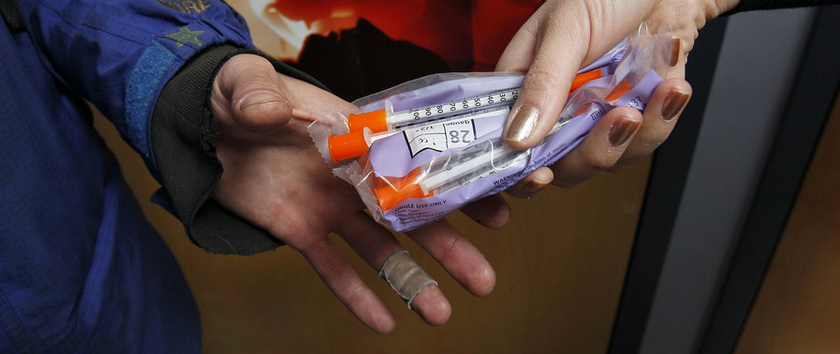Due to COVID-19, many services across Scotland are trialling a postal mailing service for Injecting Equipment Provision (IEP).
The intention is to provide safe and sterile injecting equipment to people who inject drugs while lockdown and social distancing measures are in place. The updated Scottish IEP guidelines recommend introducing postal IEP but until the pandemic it had not been done. Services in Grampian, Highlands, and Tayside are among some of the areas which have started to implement the service.
Through NHS Highland, clients in Inverness can telephone or send a text message to arrange a delivery of a fourteen-day supply of IEP to their home address. Following advice from the Post Office, the IEP is sent out in a padded envelope and must have a return address noted on the envelope. In Aberdeen, Alcohol & Drugs Action have been running a Sharp Response needle delivery and pick-up service offering both home and postal delivery. NHS Tayside have also established a postal IEP service, delivered by Hillcrest Futures and We Are With You. Along with the postal IEP, many services are also offering postal naloxone.
To find out more about what areas are offering a postal IEP service you can look at our Service Delivery Changes resource.
Postal IEP can help provide safe injecting equipment to people living in rural areas where services experience challenges accessing and engaging people over wide geographic areas. It could also reduce the stigma of being seen attending local community services and accessing harm reduction equipment. It can provide a choice to people who use the equipment and it is hoped that it can help increase user uptake of safe injecting equipment.
Leon Wylie, Lead Officer at Hepatitis Scotland believes that ‘postal IEP is a user-focused, innovative approach to the distribution of needed harm reduction materials. It overcomes current restrictions on accessibility but has the potential to be a positive change in the future as well.’
The primary issues that have been raised with postal IEP are the disposal of the used injecting equipment and the reduction of face to face opportunities of care and harm reduction interventions with service users.
While it is still early days for the initiative and uptake has varied, early reports show that it is being well received by those using the service. Dr Andrew McAuley, Principal Healthcare Scientist at Public Health Scotland said, ‘dependent on the results of evaluating postal IEP, it could provide an exciting new addition to the IEP service infrastructure in Scotland on top of the more established routes such as fixed sites, mobile vans and outreach.’

